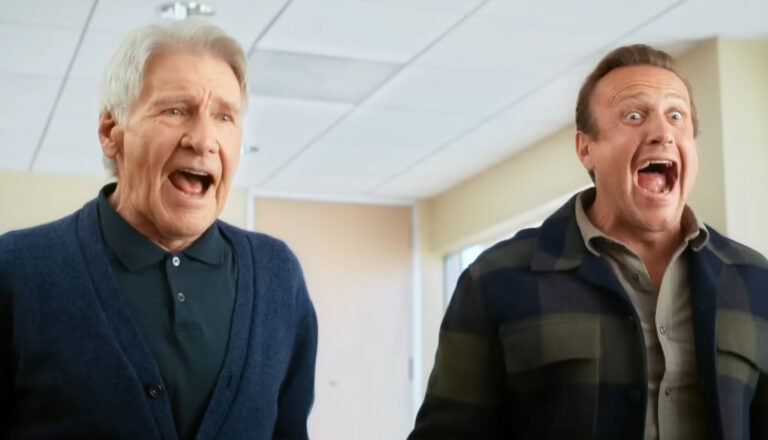
Shrinking
Apple TV+ seems to have a knack for creating deeply heartfelt, wildly problematic comedies. Shrinking is one of them.
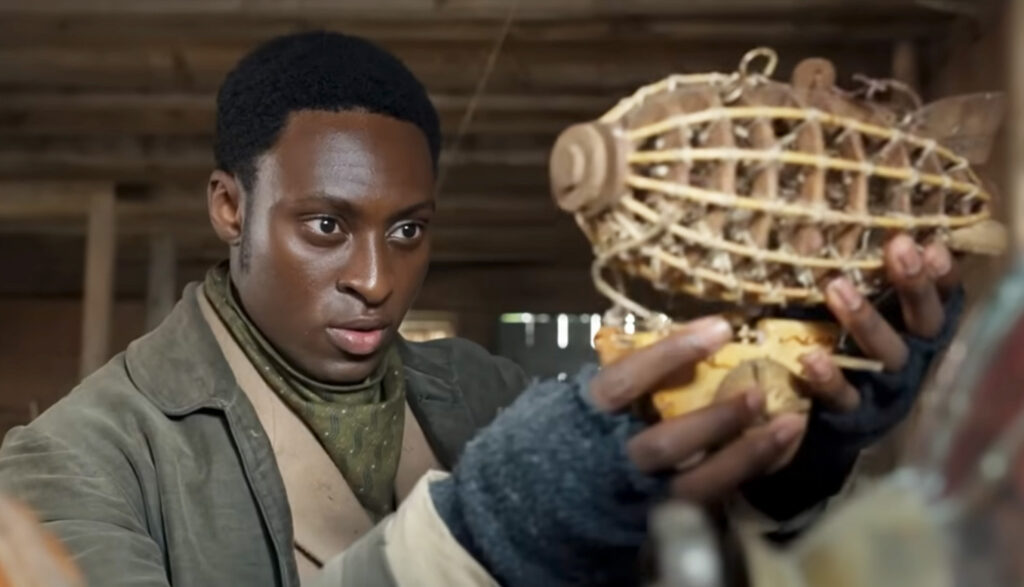
Wash’s life has been both extraordinarily adventurous and extraordinarily difficult.
Given the full name George Washington Black, Wash has always had a rather big legacy to live up to—but also a rather inspirational one. His friends simply call him “Wash.” Or at least, they did until he was forced to run away and change his name to Jack Crawford.
You see, Wash is a Black man, born in Barbados during a time when slavery was still very much prominent both there and throughout the world. The owner of the plantation where Wash worked, Erasmus Wilde, was a cruel man. So much so that many of his slaves opted for suicide rather than continuing to work for him.
Fortunately, when Wash was about 11 years old, Erasmus’ brother, Christopher “Titch” Wilde, moved to Barbados and took an interest in the young slave. As a scientist, he recognized Wash’s mechanical intellect, curious mind and talent for drawing. So he quickly scooped Wash up, teaching him to read and write. And together, they began work on Titch’s latest and greatest invention: a flying machine.
Unfortunately, Titch and Erasmus’ other brother, Phillip, moved to Barbados shortly after Titch did. Prior to their father’s death, Phillip had been placed in an institution for psychiatric patients. We’re never given the details, but Phillip was almost certainly a danger to both himself and others.
Titch and Erasmus brought Phillip home because they thought it would be good for him. Instead, Phillip kills himself right before young Wash’s eyes.
Titch immediately fears for Wash’s life. Although it wasn’t Wash’s fault, he knows that Erasmus will blame him for Phillip’s death. And so he and Wash flee in the very flying machine they’d been building.
From there, Wash’s adventures take him aboard pirate ships, across oceans and into the Arctic. However, circumstances separate him from Titch, and without his benefactor’s protection and financial resources, Wash finds himself on the run from bounty hunters hired by Erasmus.
He eventually makes his way to Halifax, Nova Scotia in Canada, the “last stop” on the Underground Railroad and a safe haven for many runaway slaves. There, he’s taken in by fellow former slave, Medwin Harris, and changes his name to Jack Crawford.
As Jack, Wash keeps his nose clean, works for wages and dreams of one day joining the Royal Science League, the esteemed scientific institution that Titch had once patroned.
It takes eight years, but Wash finally begins to feel safe from Erasmus’ wrath. So, he begins working on Titch’s old invention, the flying machine, hoping to improve it and fly it to the World Science Expo in London (and hopefully to guarantee acceptance into the Royal Science League).
Wash is assisted by Mr. Goff, a scientist who recently moved to Halifax in order to arrange the marriage of his daughter, Tanna, to a young, rich Canadian lord.
But Wash and Tanna take both an intellectual and romantic liking to each other. What’s more, Wash realizes that Tanna is also harboring a secret: She’s actually half Black. Although she passes for white, she was shunned from British society after revealing her mixed heritage. And marrying her to a member of the Canadian gentry is Mr. Goff’s last hope of securing her future.
However, Tanna doesn’t want that future for herself. If she had her druthers, she’d be pursuing music, not matrimony. But Tanna is also tired of hiding her true heritage. She wants to fully embrace the culture of her deceased mother and the culture of her affluent father. And she believes that with Wash, she just might be able to achieve that dream.
Alas, Wash and Goff’s “Flying Man” project begins to draw attention. And soon, Wash finds himself hiding from bounty hunters once again.
Will Wash perfect the flying machine, join the Royal Science League and win the heart of the woman he loves? Or will he finally get caught by the people who have hunted him for so long?
Based on the eponymous novel by Esi Edugyan, Hulu’s Washington Black is an interesting look at Antebellum-period North America and the Caribbean. As such, many of the characters we meet are escaped slaves from the Southern United States. Wash even adopts a Southern accent in an attempt to befuddle a bounty hunter searching for him.
With that in mind, viewers should prepare themselves for the harsh realities Black people faced during that time period. Granted, much of this story takes place in Canada, where slavery was already abolished. And yes, this is a fictional tale. But it’s clear that Wash and many others, even though they’ve taken refuge in Canada, live in constant fear of capture and re-enslavement.
Parts of this story also depict Wash’s past in Barbados. We learn he never knew his parents and that he was raised by another slave. That woman, Big Kit, is horrifically abused by Erasmus after accidentally spilling some wine. And, of course, Titch flees with Wash for fear of Wash’s life after Phillip kills himself.
Erasmus makes it clear to his slaves that he owns them. So when he learns that a few have taken their own lives, he threatens those who remain, telling them that he’ll brutally torture their families if they commit suicide. It’s probably safe to assume that we might see some other forms of abuse toward enslaved people as the show progresses.
And that takes us into some other difficult aspects of this story. Phillip, as already mentioned, kills himself right in front of Wash. We see the corpse of a man who purposely jumped from some cliffs. And while no murder occurs in the first episode, I wouldn’t take it off the table since people are constantly threatening each other with guns and other weapons.
Language and romantic content are kept rather mild. We hear some uses of “d–n” and “h—.” There’s the occasional discussion of romantic trysts, and we also see some kisses onscreen. Characters also imbibe quite frequently. Wash commits his fair share of technically illegal acts, since he joins up with pirates at one point. And we see some mixed spiritual beliefs that combine Christianity with other cultural belief systems.
Compared to much of what’s available on TV and streaming today, Washington Black actually feels like it was written for the audience that it’s rated for. TV-14 seems like a very fair rating. Though younger audiences should still steer clear, since this show can get pretty intense (the scene where Erasmus hits Big Kit is quite jarring, not to mention a partial depiction of a man’s suicide), parents could easily walk their teenagers through this content without too much hand-holding.
(Editor’s Note: Plugged In is rarely able to watch every episode of a given series for review. As such, there’s always a chance that you might see a problem that we didn’t. If you notice content that you feel should be included in our review, send us an email at letters@pluggedin.com, or contact us via Facebook or Instagram, and be sure to let us know the episode number, title and season so that we can check it out.)
When a woman laughs at Wash for wanting to fly—noting that God didn’t give him wings for a reason—Wash tells her that his invention isn’t about God, it’s about science. Someone says, “God bless her soul,” in reference to a deceased person.
In Barbados, slaves perform a religious, cultural ceremony to honor a man who recently died. They lift their hands to the moon, clapping rhythmically. Big Kit tells Wash that the man in question “chose his death” because he believed he would finally be free and reborn. In the Solomon Islands, people perform a different religious ceremony at a funeral. Neither ceremony is Christian.
Men and women dance somewhat sensually at a gathering. A woman wears a shoulder-baring gown at a fancy event. Tanna goes swimming in her modest undergarments (she’s almost entirely covered besides her upper arms). After coming out of the water, she speaks with Wash, and his gaze lingers on her neck and clavicle, though he seems to be focused on the fact that she is wearing makeup to make her skin look lighter. Some couples flirt.
Erasmus shows his slaves the body of a man who jumped from the cliffs, and he threatens to “peel the skin” off the kin of any slaves who commit suicide in the future. Later, he hits Big Kit in the face, bloodying her nose, after she accidentally spills some wine. (Titch kindly tends to her afterward.) When Phillip arrives, he is verbally abusive to the slaves as well.
We learn that Phillip was locked up for both his own safety and the safety of others, though we never learn the details. Titch fears Phillip, worried what he might do to Wash out of spite and jealousy. Sure enough, Phillip orders Wash to cross a blast zone where Titch is testing his flying machine. As Wash is crossing, the machine explodes, injuring him and scarring him “for life.”
Titch shows Wash a childhood scar on his cheek in an attempt to comfort the boy after he’s injured. A scientist laments that he couldn’t capture the unique coloring of an animal after he caught and killed it. So Wash suggests that in the future, perhaps the man shouldn’t kill the animal or mount it. (The man has dozens of mounted fish in his lab.)
Tanna wants to embrace her mother’s heritage, but she was shunned by British society when she revealed that she is mixed race. Her father tells her it was her mother’s dying wish that Tanna wouldn’t spend her life stuck in the Solomon Islands. And he attempts to fulfill that wish by arranging Tanna’s marriage to a Canadian lord (whom Tanna has never met). But Tanna is outraged by this proposal: It means she’ll have to continue hiding her heritage, since she believes her father is using her mother to manipulate her.
Erasmus asserts his ownership over his slaves, treating them cruelly and uncaringly. He mocks Titch because he finds it ironic that Titch, who is an abolitionist, needs Erasmus’ slaves to help him complete his flying machine.
A Black man jokes that if white people don’t kill him, alcohol will. People drink alcohol throughout the episode. During a toast to slaves who died while trying to escape, a Black man curses the “white b–tards” who killed them, adding that he hopes their “p-ckers” will fall off. Bounty hunters search for Wash, so he puts on a Southern accent and lies that his name is Jack.
We hear uses of “d–n” and “h—.” God’s name is misused several times.

Emily studied film and writing when she was in college. And when she isn’t being way too competitive while playing board games, she enjoys food, sleep, and geeking out with her husband indulging in their “nerdoms,” which is the collective fan cultures of everything they love, such as Star Wars, Star Trek, Stargate and Lord of the Rings.

Apple TV+ seems to have a knack for creating deeply heartfelt, wildly problematic comedies. Shrinking is one of them.
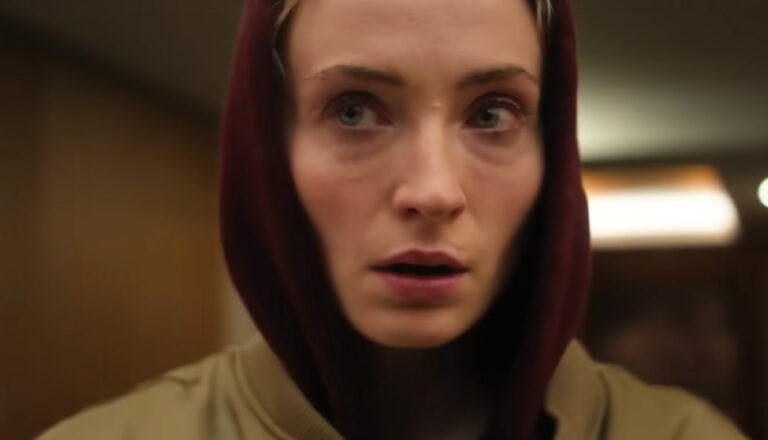
‘Steal,’ an intense, nail-biting thriller, will certainly keep you engaged. But that means facing some bloody, frightening situations along the way.
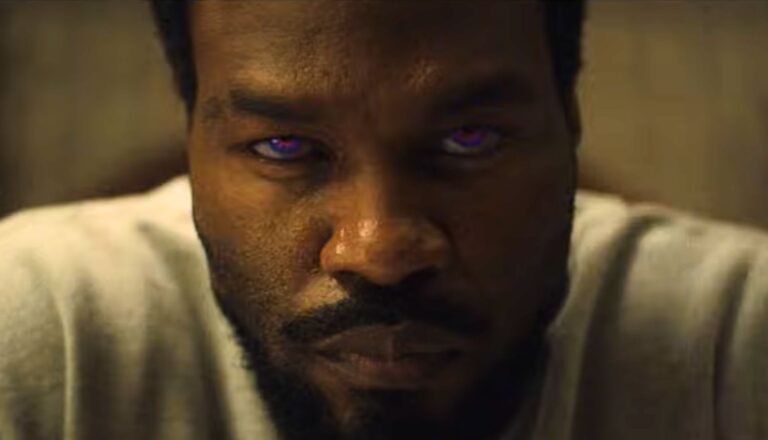
For a superhero show, ‘Wonder Man’ is surprisingly light on violence, but a bit heavy on swearing, sexual allusions and meta-Hollywood references.
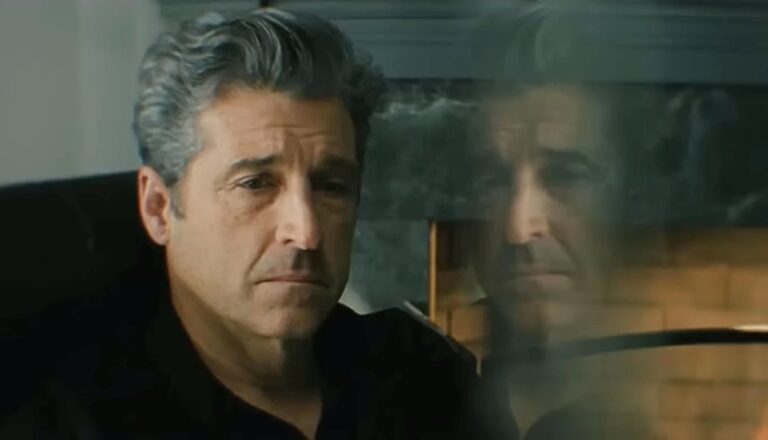
The content issues in ‘Memory of a Killer’ aren’t forgettable, but they’re tamer than most other shows in the “double life” genre.